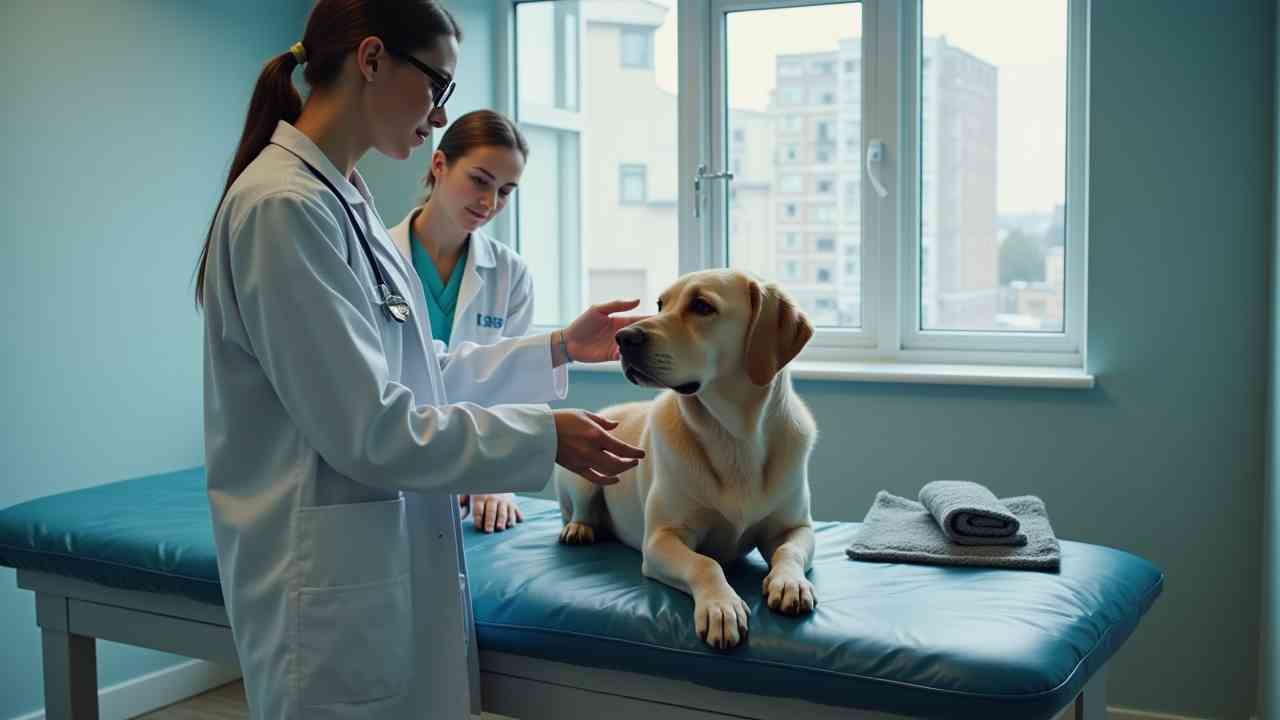
🐾 Why Is My Dog Peeing While Sleeping? A Vet's Guide to Incontinence
🐾 A Vet's Guide to Why Your Dog is Peeing in Their Sleep 🐾
❗ CRITICAL VETERINARY WARNING: A dog peeing while sleeping is almost always a sign of an underlying medical problem, not a behavioral one. You must not punish your dog for this. Your first and only step should be to make an appointment with your veterinarian for a proper diagnosis. This guide is for informational purposes only.
It can be very distressing to discover that your dog has been urinating in their sleep. You might find a wet spot on their bed or on the couch after a nap. Your first thought might be that it is a house-training accident. However, when it happens during sleep, it is an involuntary act called incontinence.
This guide will explain the difference between an accident and incontinence. We will also cover the most common medical causes. Let's explore this important health issue. ✅
🤔 First, What is the Difference Between an Accident and Incontinence?
This is a crucial distinction. A house-training accident is a conscious act. The dog is awake and knows they are urinating. Incontinence is the involuntary or unconscious leakage of urine. The dog is not aware that it is happening. This is why it most often occurs when they are relaxed or fast asleep.
Punishing a dog for incontinence is both cruel and ineffective. They cannot control it. It is a sign that their body is not functioning correctly, and they need medical help.
- What Are the Most Common Medical Causes?
Your veterinarian will investigate several potential causes. Some are very simple to treat, while others are more complex. Here are the most common reasons for a dog peeing while sleeping.
1. Is it a Hormonal Imbalance? (The Most Common Cause)
For spayed female dogs, the most common cause is a condition called Urethral Sphincter Mechanism Incompetence (USMI). This is a fancy term for a weak bladder sphincter muscle. It is caused by a lack of estrogen after being spayed. The good news is that this is highly treatable with a simple, lifelong medication.
2. Could it be a Urinary Tract Infection (UTI)?
A UTI is a very common cause of urinary issues. The infection irritates the bladder, which can lead to leakage and a frequent urge to urinate.
3. What About Bladder Stones or a Blockage?
Stones in the bladder can cause irritation and lead to incontinence. They can also cause a partial blockage that results in a constant dribbling of urine.
4. Is it Age-Related?
Just like in humans, the muscles that control the bladder can weaken as a dog gets older. Senior dog incontinence is very common. The cooler autumn weather can also make older dogs with arthritis less willing to go outside, which can sometimes contribute to the problem.
5. Could it be a Spinal or Neurological Issue?
An injury to the spine or a neurological disease can damage the nerves that control the bladder. This can lead to a complete loss of bladder control.
- What Should You Do First?
The only correct answer is to make an appointment with your veterinarian. They will perform a physical exam and will likely want to run a urinalysis to check for an infection or crystals. Be prepared to tell your vet when the problem started and if you have noticed any other symptoms.
- How Can You Manage the Mess at Home?
While your dog is being diagnosed and treated, you can manage the situation at home. Use waterproof covers on your dog's bed and any furniture they sleep on. You can also use special doggie diapers or absorbent pads. Frequent potty breaks, especially right before bed, can also help.
Remember, this is a medical problem with a medical solution. Your vet is your best partner in helping your beloved companion. 🩺